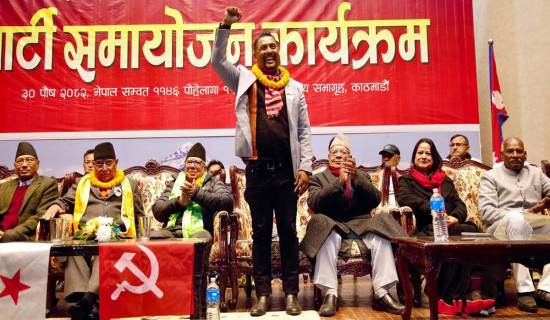- Wednesday, 14 January 2026
Impact Of Social Media On Journalism
Aashish Mishra
At every seminar, workshop, training or discussion related to journalism these days, one topic always comes up – the impact of social media.
In fact, it comes up so many times that the topic seems to have lost its value. Just like we take for granted the presence of water when we are thirsty (there is no conscious thought involved in drinking water; we do not stop to think of the composition of the liquid nor do we consider its value and importance, we just take a gulp and quench our thirst), we have taken for granted the availability of social media.
But when we take a moment’s pause and compare the way things are today with how they were just 20 years ago, we see the true impact social media has had on this profession of news.
First, social networking platforms have allowed readers to connect at a level that traditional print and broadcasting never did. People who have read the same article or watched the same video are aware of each other based on the “reactions” they have given or comments they have posted on social media.
They can interact with each other at a personal level that just was not possible before.
Social sites have built this same connection and interaction between audiences and media houses and journalists as well.
People can now make their opinions known instantly by commenting, tagging or direct messaging.
Journalists can and have now become celebrities, amassing a fan following based on the kinds of issues they cover and social media accounts have now become places for reporters to mix journalism with activism without editorial gatekeeping.
Social media also helps create true news audiences. In the past, we had media audiences wherein people tuned into a specific TV channel or radio station or bought a particular newspaper they liked and consumed its news only.
Now though, they get a variety of news from many different sources – even if they do not want to – because the algorithms of Facebook, Twitter or YouTube push content based on their and their friends’ activities.
This may not necessarily be a good thing but the point is that social media exposes people to diverse perspectives and information.
It might not be an exaggeration to claim that social media has revolutionised the way society consumes news and has detached it from the concept of media. Today, the media often follows the story first broken by citizens on their private social media handles and uses the information and visuals from their posts in their news. People go to specific pages and accounts to stay updated on current affairs.
In their pursuit of accuracy, the news media have lost out to pages and people who have no qualms about posting falsehoods and propaganda.
Today, what the people perceive as news may be a collection of unverified, unbalanced, unsourced and unstructured data thrown at the people to arouse emotions or incite actions.
Social media has made news fast but cheap and has made it okay to sacrifice truthfulness for rapidity.
Social media has also made consumers the true rulers of the news world. While in principle, the media have also been subservient to their audience, this was not really true in practice.
The media gave the content they felt was necessary and the people had to either accept it or tune out.
But now, if they do not like something, they can make it known through comments and shares. Social media reactions can annihilate a news organisation’s credibility and reputation and articles can go viral for all the wrong reasons.
Social networking sites have made it very easy for the average person to have an impact in the news world and shape its output based on his/her moral philosophies and understanding.
This, by no means, is bad though and people having power over social institutions is what democracies are all about. The effects of social media on journalism are wide and multidimensional.
The rise of sites like Facebook and Twitter has pushed journalists to reform and evolve their craft. They have had to acquire tech literacy and media houses have had to develop infrastructure.
Social media has also established itself as a mandatory platform for exposure, so much so that if an issue is not on social media, it is not considered news.














